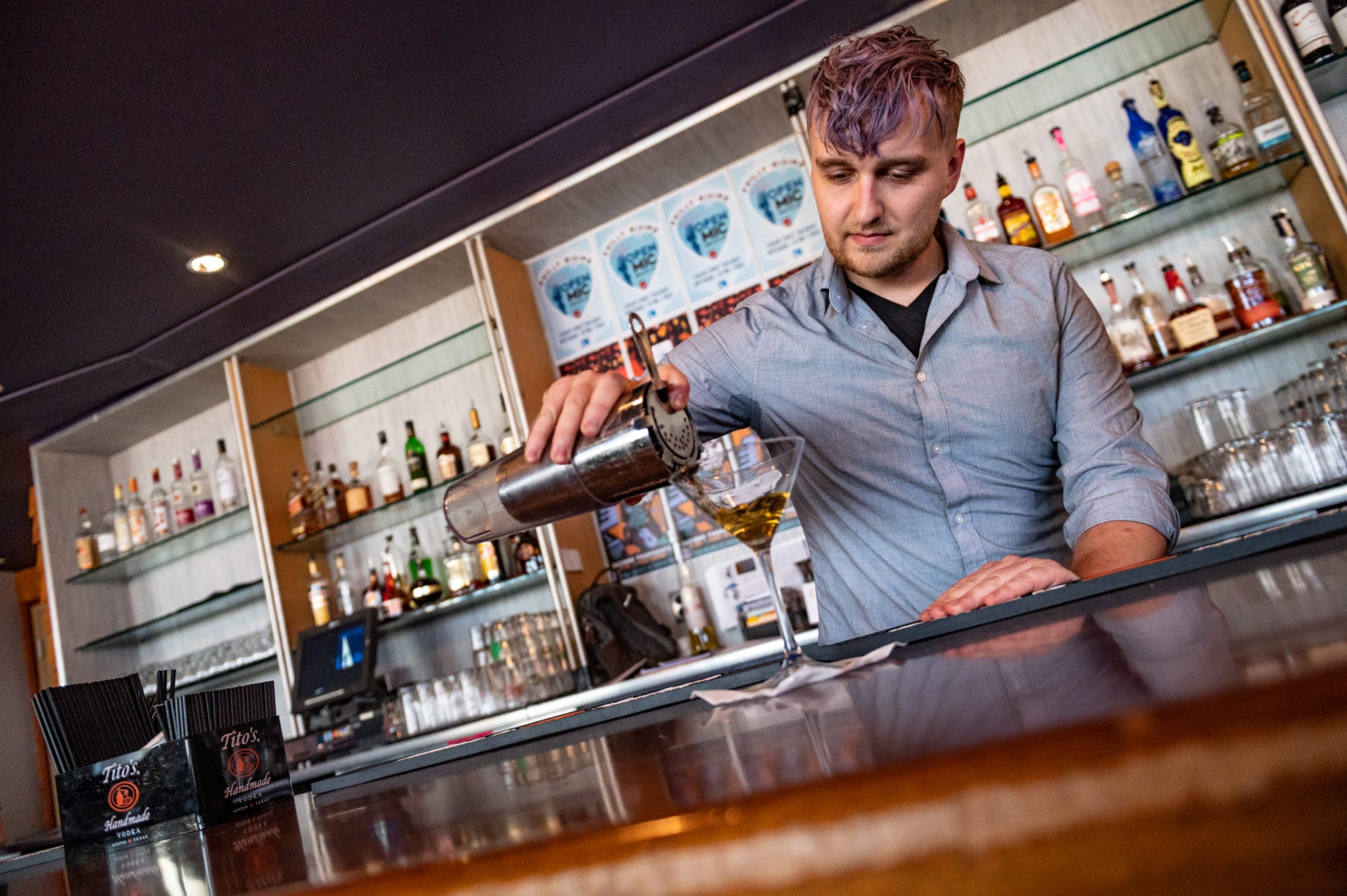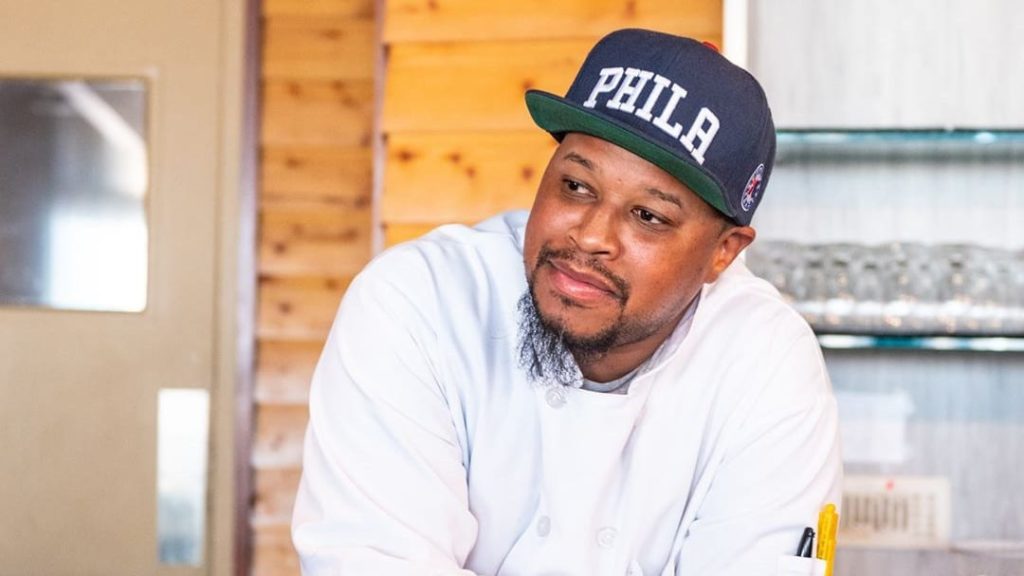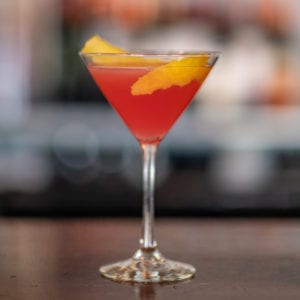by ROB COTTMAN
I have had the fortunate opportunity to meet many people throughout my life and travels, and every single one of them has taught me something about getting where you want to go. In this current chapter of my life as Executive Chef of World Cafe Live, I am grateful to work alongside many people in both the hospitality and music industry who are working hard daily to stay sharp in their respective fields. Here you will find my interviews with some of those people, and an exclusive inside look behind the scenes of who we are and what we do and why we love it.
EPISODE ONE:
Meet Gabe
As a Chef, one of the best compliments to your food is the perfect cocktail. One of my favorite collaborators is World Cafe Live Bar Manager and resident mixologist, Gabe Dullek.

RC: What do you feel like defines a mixologist and how do they differ from bartenders?
GD: Like a most bartenders, I’m reticent to embrace the term “mixologist”, even if it makes sense on paper. That’s probably because of the common perception surrounding it; it suggests an image of pretention that most of us don’t want to be associated with. Given the chance to rewrite popular perception, I’d define a mixologist as a bartender who also creates cocktail recipes and has a passion for the art of the cocktail.
RC: Where does your passion for spirits and cocktails stem from?
GD: I get most of my culinary appreciation from working with my dad, who’s been a chef for as long as I can remember. He’s always had a capital “R” Romantic view of cooking and treated it as his art that he had the opportunity to share. I can’t place the exact moment when I steered that same passion towards spirits, but after a few years in the industry, I started taking over the cocktail program at WCL. When I realized I had been reading cocktail books in my free time, I knew I’d caught the bug.
RC: What is your take on representing traditional recipes vs using personal creativity to put a twist on a classic?
GD: My love of history leads me to try more than my fair share of traditional cocktail preparations, and when I share those with other people, it feels like momentarily resurrecting the past. But the past isn’t necessarily sacred, and older isn’t necessarily better. That’s why it’s important to study context, learn from it, and expand upon it. Never stop improving what’s been done before.
RC: How do you encourage people who are less informed about the nuance of spirits and invite them in to try something new?
GD: I asked the same question of Derek Brown at a signing of his book “Spirits, Sugar, Water, Bitters”. He told me that a bartender’s most important tool behind the bar is charm. If someone asks for a basic cocktail, offer to make them something better. Make it a collaboration between you and them. Bartending being a social career, you can usually pick up on whether someone will be receptive to that approach. The other key is to avoid being condescending. I treat my liquor knowledge with the same enthusiasm as a kid opening their toybox for something to show you.
RC: What is your favorite spirit to use in cocktail creation, and why?
GD: There’s a wide range of Italian Amari (bittersweet herbal liqueurs) out there, and maybe the best thing about them is that no two are alike. Take any cocktail and swap out the sweet ingredient for an Italian Amaro and it’ll result in a beautifully complex drink.
RC: What spirit in your opinion should never be mixed?
GD: Single malt Islay scotch. But in general, any spirit for which the aging process is part of the appeal. Those flavors can take a generation to develop, and they’re easily masked by additives. I won’t be so dramatic as to suggest that someone who enjoys their ten-year-old scotch with sprite is committing an act of sacrilege, but it would be wasteful.
RC: What spirit do you think is the most overlooked when creating cocktails?
GD: Vermouth has been relegated to this sad role of punching bag for martini drinkers. Probably because they’ve never had a good one or worse, had one that’s been sitting behind the bar way past its expiration date (refrigerate your vermouth, everybody). Like amaro, a decent vermouth can add complexity to almost any cocktail or be enjoyed on its own.
RC: How do you handle the challenges of high volume bartending, where there isn’t time to develop a conversation around each drink?
GD: The greatest challenge has been ensuring speed and ease of service without sacrificing quality; thankfully I have as much time to prepare as I’m willing to put in. I took inspiration from stories of Donn Beach, mixing and batching ingredients ahead of time to speed up service and guarantee consistency. I’ve been given the opportunity to continuously experiment with and improve those formulas and will continue to do so.




